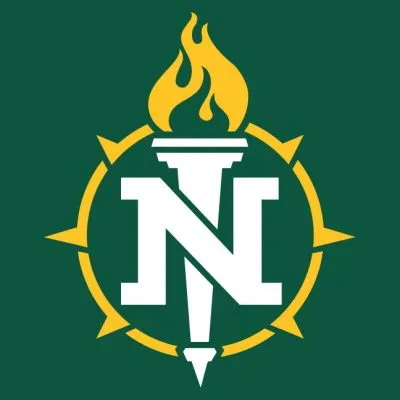Northern Michigan University students in a social entrepreneurship special topics course last semester worked with refugees in Greece to improve their businesses. The students collaborated with Global Brigades, a nonprofit based in the United States with satellite offices that help communities reach health and economic goals. Global Brigades picks the businesses run by clients from different countries and connects them with students.
“It felt more like an internship than a class,” said Corinne Bodeman, a management instructor in NMU's College of Business. “They were given minuscule tasks because of their time frames, but because we extended the time Global Brigades typically does it—a seven-week period—we were able to do a deep dive into a lot of things. They didn't have a simple project, like making a spreadsheet; they had a business to control. This course was all-encompassing. It's acting as consultants. The students heard the problem and had to find solutions.”
Shafi, originally from Afghanistan and Iran, is a refugee in Greece who started a clothing line called Shafi Style. Students aided in creating a business plan and designing a business model canvas and discovering whom she should start selling to and suggesting all of her marketing materials.
Another client, Ali from Pakistan, owns a butcher shop. He didn't have financial controls and couldn't accurately gauge how much profit he was making. He took what remained in the register at the end of the week. The team created an Excel spreadsheet as a tool for him to use to get a grasp of his financials and generate weekly, monthly and annual reports. Students also suggested marketing ideas like incorporating a QR code and putting his business on Google maps. They also needed to help him find ways to save money to buy a needed freezer for his shop.
The clients were at every stage of running businesses, and the students' job was to consult for them in groups and put their experience into practice. The class started at 8 a.m. to account for the different time zones and meetings were conducted through Zoom. Challenges included language barriers and some clients' hesitancy to share data, which required students to make assumptions about the businesses.
Global Brigade assigned homework for the course, and students learned about the United Nations, refugee problems and Greece.
“You get to know somebody who's not from where you are, more about the culture and more about how they struggle with similar business issues that we do here,” said Rachel Harvey, a management major. “We're not that different.”
“I tend to be sensitive to social entrepreneurship, which means doing good for others, creating businesses for other people, and empowering others to do their own,” said Bodeman. “We're a global economy; you've got to understand global issues. It's a wicked problem. You can't solve one problem without it affecting someone else.”
Edith is from Nigeria and runs her restaurant, Wisdom Kitchen. Her team mainly focused on marketing materials and noticed no marketing consistency. A student created a logo, and the team aided financials. A refugee from Romania, Petre, has a restaurant in Athens called Petre's Yard. He needed help finding an employee, and a human resource management major put together a resume and job description for the position. Petre's group also helped focus his menu and marketing his restaurant.
“As for me not being an entrepreneurship or marketing major, the class helped round out my experience,” said Nathaniel Born, a public relations major. “I got to interact with people from different majors, as well as learn skills I wouldn't have in my program if I didn't use the extra credits I needed to fill. It was a nice, overall encompassing class, and there were some things I didn't know because I didn't go through the same sequence as everybody else, but the challenge of learning it and getting through it together was cool.”
Mentors from Greece conducted a final debriefing of the teams' work at the end of the project, providing feedback on how they did and the likelihood of the information they provided being utilized.

